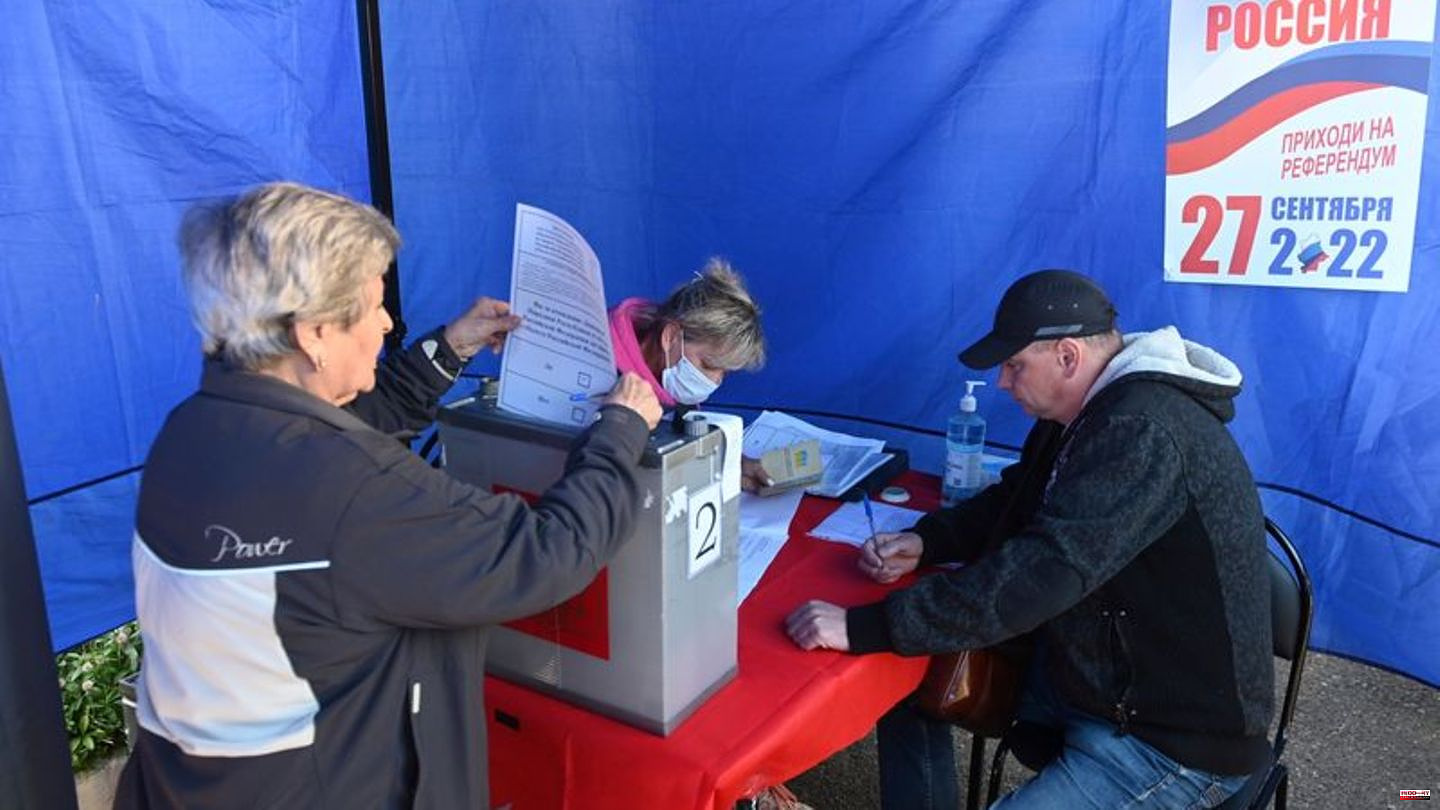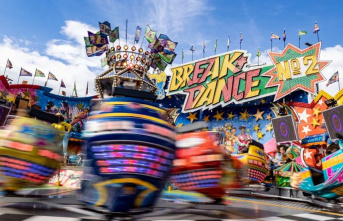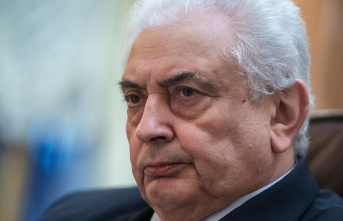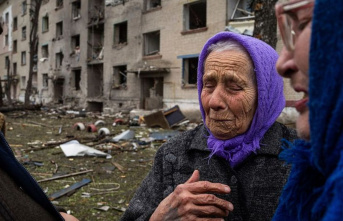With the annexation of the four occupied Ukrainian regions, Russia is for the first time since annexing the Black Sea peninsula of Crimea in 2014, using force to move borders in Europe. The United Nations criticize this as a breach of international law. Ukraine is demanding heavy weapons from the West to liberate the territories and demanding even tougher sanctions from the EU and the US. The war, which has been going on for seven months, is entering a new phase. How to proceed now, some questions and answers:
How are the annexations of Ukrainian territories carried out?
At their request, Moscow concludes agreements on admission to its territory with the specially appointed Russian leadership of the Ukrainian regions of Luhansk, Donetsk, Cherson and Zaporizhia. Then the documents will be examined by the Russian Constitutional Court and sealed next week by the Russian Parliament - the State Duma - and the Federation Council - the upper house. This is likely to fuel the war further, because Ukraine controls parts of the areas and wants to liberate them completely with the help of Western weapons.
However, the nuclear power Russia has threatened to use all available means to defend the areas. In addition, Moscow has named the complete conquest of the Donetsk region as a minimum goal. So far, Russian troops control 58 percent there. In a controversial partial mobilization, Kremlin chief Vladimir Putin has 300,000 reservists drafted in to hold the occupied territories.
What does the annexation mean for the people there?
It covers an area of over 108,000 square kilometers. That corresponds to the size of Bavaria and Baden-Württemberg together. Including the Black Sea peninsula of Crimea, which was similarly annexed in 2014, Ukraine has lost control of nearly 20 percent of its territory. As was the case then, international recognition is not in sight this time either. Moscow has ruled out returning the territories through diplomatic negotiations.
Russia touts the people with a historic return to the motherland and with higher pensions and social benefits than in Ukraine. As with the annexation of Crimea, people should automatically become Russian citizens. At that time, citizens of the peninsula had a transitional period of time to actively speak out against it and, after a declaration, to keep Ukrainian citizenship.
Will the people be convened now?
While there is now also a partial mobilization of reservists in Crimea to hold the newly occupied areas, the citizens in these areas probably do not have to fear direct conscription for military service. However, in the areas in Luhansk and Donetsk that have been controlled by pro-Russian separatists for years, mobilization has already begun. Ukrainians have been fighting there against Ukrainians for eight years.
In the newly occupied areas of the Zaporizhia and Cherson regions, which Putin recognized as independent states on Friday night, there is likely to be a transitional arrangement. However, Russia had recently issued hundreds of thousands of passports in the contested areas. Anyone who is a Russian citizen and reservist may fall under partial mobilization.
How is the Russian population reacting?
A euphoria like the annexation of Crimea in 2014 is not felt at all in Russia. The mood is rather depressed this time because, unlike then, there is now a bloody war with thousands of dead. There is no end in sight. The cost of annexation is high because billions are needed to rebuild the devastated areas. In addition, western sanctions are putting pressure on the Russian economy. Patriots are enthusiastic about Putin's actions - even after the army's defeats in Ukraine.
But there are also massive protests against the war. The partial mobilization ordered by Putin hits many families to the core. The Kremlin boss was popular for a long time because he didn't interfere in people's private lives. That's over now, as Russian political scientist Tatyana Stanovaja says. She also argues that sections of the elite may not be willing to pay any price for a Russian victory. In view of the protests against the mobilization, the new wave of repression and Russia's increasing international isolation, she believes it is possible that cracks will appear in the system that could endanger Putin's power.
How does Putin justify the annexation?
Putin justifies this with the alleged protection of the civilian population there from attacks by Ukrainian nationalists. Two and a half million people had to flee because of the fighting. "Those who stayed - about five million people - are now subjected to constant artillery and rocket attacks from neo-Nazi fighters. They attack hospitals and schools and carry out terrorist attacks against civilians," Putin claimed in his mobilization speech. Meanwhile, many Russian soldiers also say that they did not find any Ukrainian Nazis there.
Implications for the Ukrainian counter-offensives
In the Ukraine, the sham referendums and the partial mobilization were noted calmly. The external adviser to the Ukrainian presidential office, Mykhailo Podoliak, asked on Twitter: "Is everything still going according to plan or not?" President Volodymyr Zelenskyy had previously stressed that Ukraine would not be intimidated. In addition, fresh forces are likely to arrive on the Ukrainian side in the coming months. For example, Ukrainian soldiers are being trained in Great Britain and other western countries.
How is the West doing?
High-ranking Western politicians see Putin's move as a "sign of weakness" and an "act of desperation" because of Russia's recent military failures. Chancellor Olaf Scholz said Putin "completely underestimated" the situation from the start. However, it is unclear how Western countries will deal with the new escalation apart from words - in particular with Putin's threat to use nuclear weapons if necessary. So far, far-reaching sanctions have been imposed on Russia and arms and ammunition have been supplied to Ukraine. However, direct military intervention by the West is still considered impossible.












